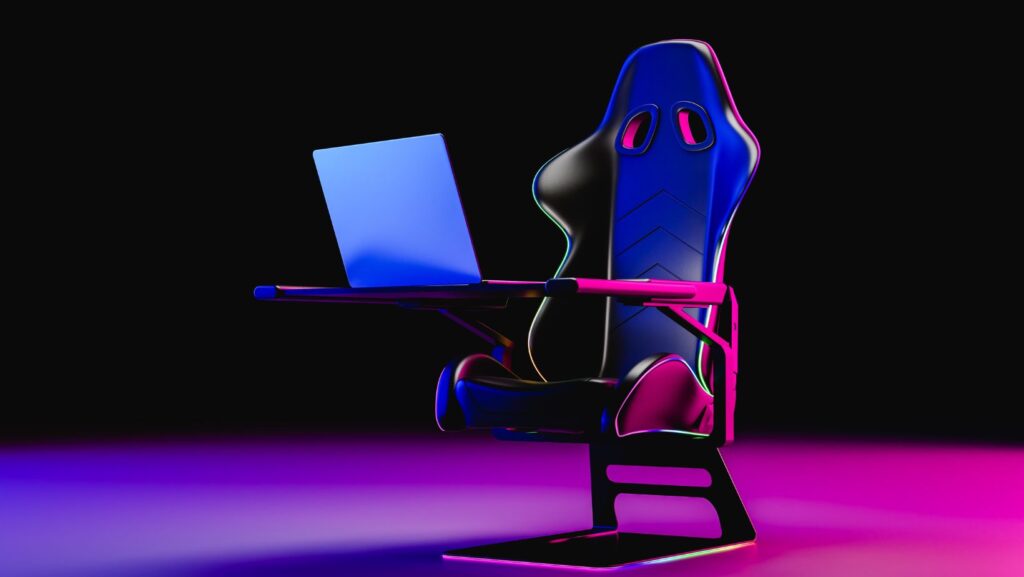Gaming laptops let you turn any nook with access to a power outlet into a portal to countless virtual worlds. However, there are so many models out there that it’s challenging for first-time buyers to get the portable gaming powerhouse that best suits their needs. Let our checklist help narrow your choices and focus on the most important considerations.
Table of Contents
ToggleThe Fastest GPU Your Budget Allows for
The GPU is the most crucial component of any gaming laptop. Investing in a good GPU lets you crank the details and resolution up or achieve higher frame rates at lower resolutions. Moreover, springing for a more powerful GPU now means you’ll be able to maintain high fidelity and effects like ray tracing in more upcoming games. GPUs integrate into the laptop, so getting a better GPU now will let you push back getting a new laptop.
All of that being said, it’s perfectly OK to go for an entry-level or mid-range GPU if you don’t have several thousand dollars to spend. If you’re into indies or competitive games, you don’t even need top-of-the-line hardware to have an awesome video game experience.
An Adequate CPU
The central processing unit is responsible for all the computing tasks your GPU can’t do, like enemy AI behavior and physics. A good CPU is important for avoiding bottlenecks, especially if you’re into competitive games and need 144+ FPS for smooth and reactive gameplay. You don’t need the best CPU to get the most out of the GPU, though. A current-generation Intel i7 or equivalent AMD CPU will be all you need.
The Right Display
A lot goes into choosing the right display. Size is straightforward – the larger the display area, the more details you can potentially make out. However, the laptop becomes bulkier as a result. Resolution determines the level of detail the screen can display. 1080p is adequate for entry-level and smaller laptops, while 1440p and 1900×1200 (if you’re into 16:10) provide the best balance of clarity and performance. 4K is hardware intensive but offers the most detailed picture.
The refresh rate determines how smooth gameplay is. Color gamut, brightness levels, ghosting, and calibration are important, too, so do your research thoroughly.
A Comfy Keyboard
Beastly specs won’t be enough to help you win if the keyboard is mushy or unresponsive. High-end gaming laptops offer mechanical keyboards, but chiclet-style ones are good, too, if they have adequate key travel.

A standalone mouse is non-negotiable for gaming on a laptop, so get one that conforms to your grip and genre preferences.
RAM and Storage
We’re lumping these together since they’re replaceable, meaning you can add more as the need arises. Even so, don’t get less than 16GB of RAM, and make sure you have a minimum of 500GB space to handle your OS and a couple of current games. Be sure to install any demanding games onto the SSD if you also get an HDD to experience drastically shorter loading times.
Cooling & Port Selection
A high-end laptop running maxed-out AAA games will get hot. The right cooling ensures the heat has somewhere to escape without making the keyboard area uncomfortable to the touch. Keep in mind that effective laptop cooling tends to be loud. You’ll also want to make sure there are enough ports for all the USB devices, external monitors, SD cards, etc., you plan to connect.
The Right Software
How a manufacturer approaches a laptop’s software loadout can impact your enjoyment. Some accompany the OS with lots of unnecessary bloatware, while others install programs that add genuine value. You might be able to save some money by foregoing Windows and going with Linux instead since it’s become a gamer-friendly alternative.

Whichever OS you go for, don’t neglect to set it up with your favorite game launchers, programs, and security tools. Password managers are universally useful. They protect your gaming and other accounts a cinch by generating long and unique passwords for each and keeping them safe in encrypted vaults.
Unique passwords and accounts protected with MFA ensure no one can log into your games, but they don’t necessarily protect you from breaches that expose any associated personal information and associated data. You might need to turn to a competent data removal service to maintain privacy and security in such cases.





